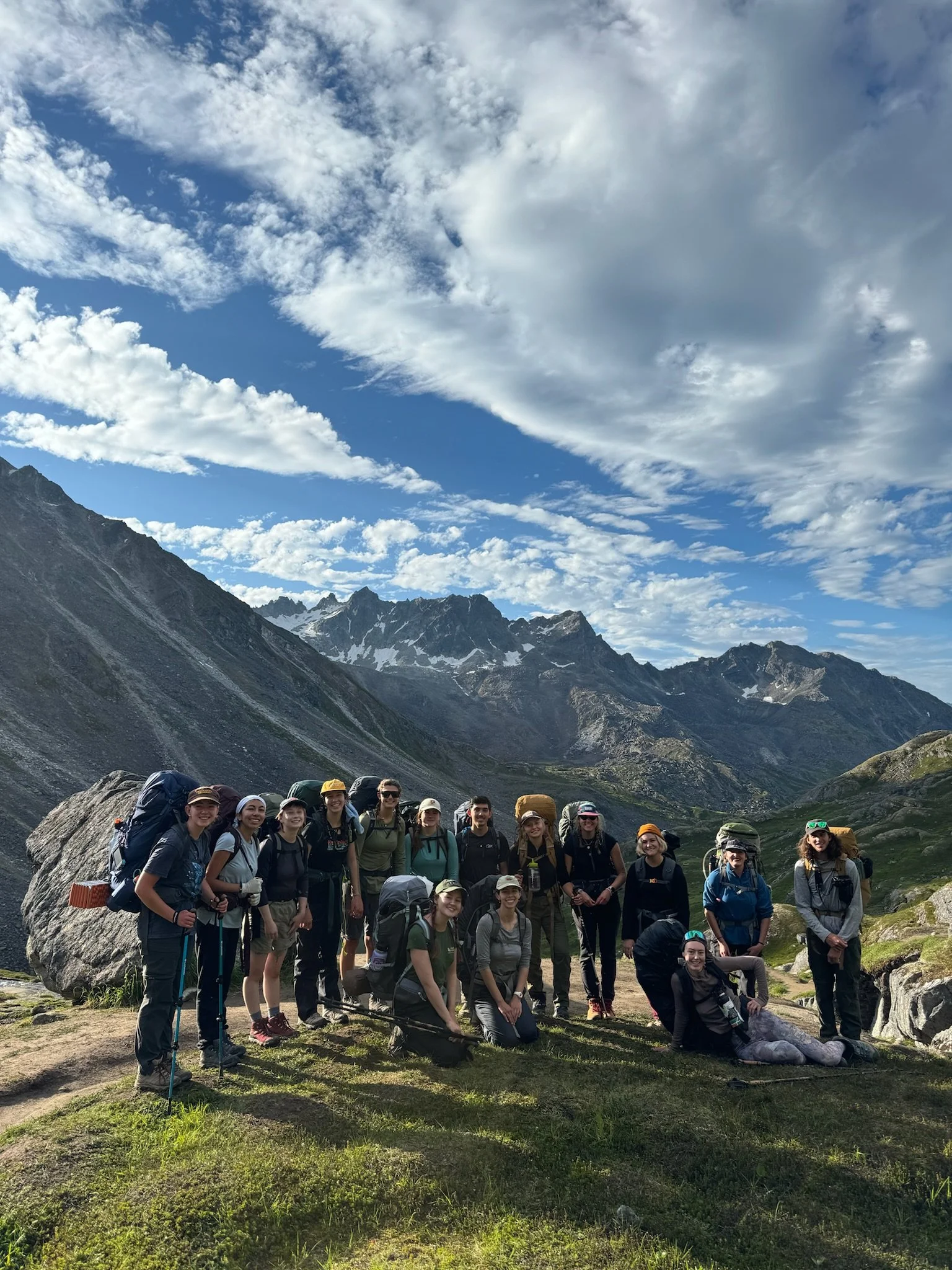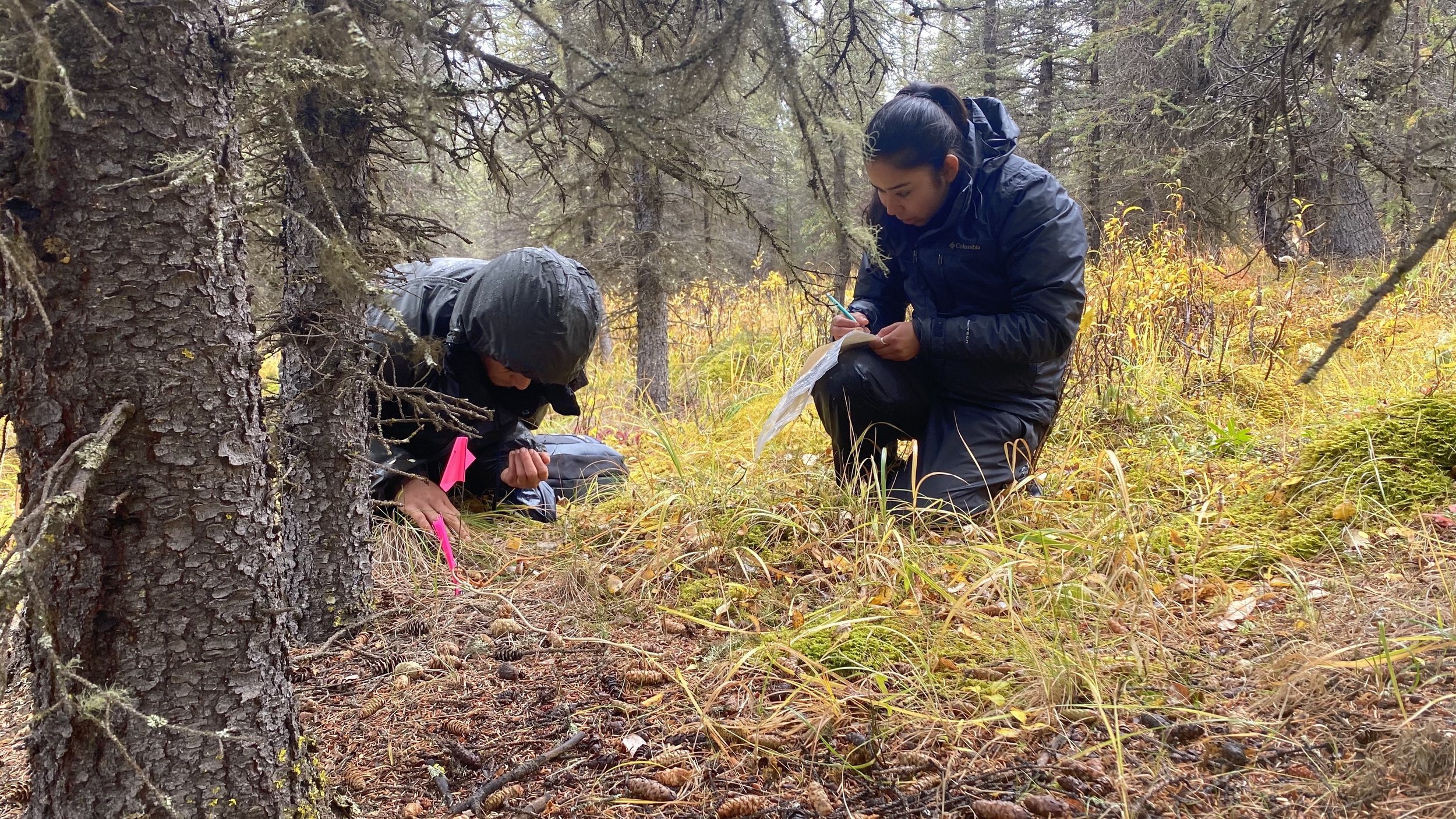Program Details
Location: Anchorage, Alaska
Dates: Summer 2026: June 27 – July 11, 2026
Accommodations: Primarily camping, short backpacking trip
Credits: 5 quarter credits or 3.35 semester credits
Language: English instruction
Courses: Environmental Wildlands Studies
Prerequisites: One college level course in environmental studies, environmental science, or similar. 18 years of age
Program Costs
Alaska Summer 2026
$ 150 Application Fee
$ 2,850 Program Fee
$ 1,500 Group Logistics Fee
$ 850 Estimated Airfare and Mandatory Travel Insurance
$ 400 Estimated Personal Expenses
$5,750 Total Estimated Cost
Summer 2026: Program fees due by May 1, 2026
The Program
There’s no denying it: Alaska is one of the most stunning places on earth. With more than 57 million acres of designated wilderness, Alaska is one of the few places in the US with large, intact natural landscapes. These vast and dynamic areas offer clean air, water, and habitat protection for many of our most iconic wildlife—grizzly bears, wolves, caribou, and thousands of other plant and animal species. Yet with climate change, Alaska is warming at more than twice the global average rate. This incredible program investigates the relationship between air quality and climate change. Students will learn how air quality data can influence policy and planning, and they will develop analytical skills for reviewing sustainability action plans. With the largest region of untouched wilderness in North America as our classroom, we will delve into how air quality, climate change, and environmental policy are shaping the last frontier.
Over two weeks, our field studies will take us to the shores of glacier-fed waterways, to alpine tundra dotted with wildflowers, and to the flanks of Denali, North America’s highest peak. We will start in a region known for its pristine air quality, establishing a benchmark for understanding the effects of human activity on visibility, health, and atmospheric conditions. Here, we will learn how to identify sources of air pollution and how air pollution is inventoried and utilized for policy and planning purposes. Then, leveraging our knowledge of the Clean Air Act and its profound implications for U.S. policy, we will build our understanding of the different factors that affect the air we breathe. As we witness and discuss the immediate and long-term effects of climate change, our focus will shift to understanding which sources are the most prevalent in Alaska and strategies the state is implementing to reduce its greenhouse gas emissions. We will discuss how science and air quality reporting can be used to address critical environmental challenges and mitigate impacts on communities, ecosystems, and the planet at large.
Through hands-on fieldwork, case studies, and group activities, our team will discover the critical role effective air policy plays in resource management, community planning, and in protecting people and the iconic wildlife that depend on Alaska’s pristine ecosystems for their well-being and existence. We will end the program as accomplished naturalists with the analytical and identification skills needed to document key flora and fauna that characterize these diverse landscapes and to address key environmental challenges.
Academic Syllabus
Student Program Manual
Allison Price
lead instructorMS IN RESILIENT AND SUSTAINABLE COMMUNITIES, PRESCOTT COLLEGE, 2023
Allison is an Environmental Scientist for the Air Improvement and Planning Division at the Arizona Department of Environmental Quality. She brings several years of experience in the private sector teaching and monitoring air quality with a focus on nuisance emissions and control technologies. Allison has held many roles at Wildlands Studies, including Assistant Director, Marketing Manager, Field Studies Advisor and Teaching Assistant for programs in New Zealand, Alaska and Yellowstone. Allison believes that connecting undergraduates to environmental science firsthand and introducing them to experts and field professionals empowers students to rethink traditional approaches on energy demands in response to climate change and rapid environmental changes. She is excited to bring her academic expertise and experience in air quality management to our newest program in Alaska, and showcase her favorite places in America’s grandest state with a lens on air quality and protection.


















